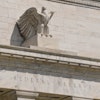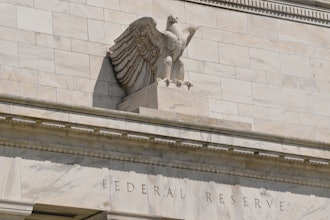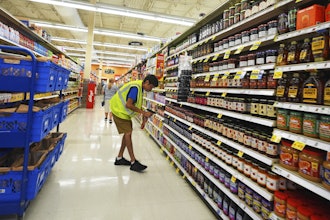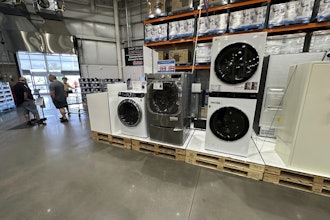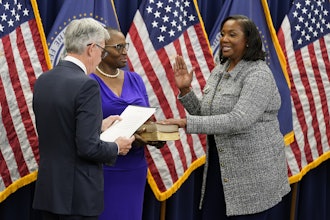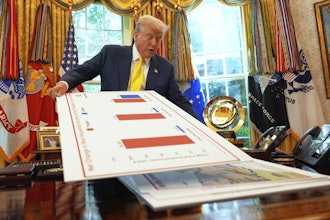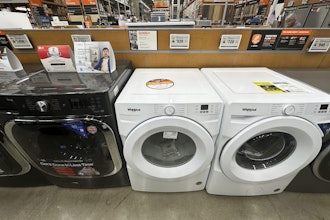WASHINGTON (AP) — The U.S. economy added 204,000 jobs in October, an unexpected burst of hiring in a month when the government was partly shut down for 16 days, and far more jobs in August and September than previously thought.
The Labor Department said Friday that the unemployment rate rose to 7.3 percent from 7.2 percent in September. But that was likely because furloughed federal workers were temporarily counted as unemployed.
The surprising job growth shows the economy was stronger in October than many assumed it would be. Activity at service companies also accelerated last month, an earlier report showed. The figures suggest that many companies shrugged off the shutdown, an encouraging sign for the economy.
The job figures are a major factor for the Federal Reserve in deciding when to reduce its economic stimulus. The Fed has been buying bonds each month to keep long-term interest rates low to encourage borrowing and spending.
Dow index futures initially fell after the report was released at 8:30 a.m. Eastern time, and the yield on the 10-year Treasury note surged to 2.73 percent from 2.60 percent late Thursday. That suggested that some investors worried that the healthier job growth might soon prompt the Fed to pull back on its bond buying.
But stock futures rose ahead of the market's opening.
Some economists said last month's strong hiring probably isn't sufficient to cause the Fed to scale back its $85-billion-a-month bond-buying program when it meets Dec. 17-18.
"The one month of job growth is not enough to allow them to pull the trigger," says Patrick O'Keefe, director of economic research at CohnReznick. "It leaves them on hold at least for the next meeting."
Others said the strong job growth might prod the Fed to slow its stimulus soon.
"In our opinion, the data would justify the Fed reducing the pace of its asset purchases in December," Paul Ashworth, chief U.S. economist at Capital Economics, wrote in a research note.
The government's report showed that employers added an average of 202,000 jobs from August through October, up sharply from an average of 146,000 from May through July. Private businesses added 212,000 jobs in October, the most since February.
Employers added 45,000 more jobs in August and 15,000 more in September than the government had previously estimated.
"While we have to take today's report with a grain of salt, we are impressed by the strength of the report," said Dan Greenhaus, chief global strategist at BTIG, a brokerage firm. "Given the impact of the shutdown, we have to wait until November's report to get a fuller picture of what's happening this fall but we're happy enough in the meantime."
One troubling detail in the report: The percentage of Americans working or looking for work fell to a fresh 35-year low. But that figure might have been distorted by the shutdown, too.
About 800,000 government workers were furloughed for all or part of the shutdown, which lasted from Oct. 1 through Oct. 16. Many were counted as unemployed and were considered on temporary layoff.
But the furloughed workers were still counted as employed by the government's survey that counts jobs because they were ultimately paid for their time off. Federal government jobs fell only 12,000 last month.
Better-paying industries boosted job gains: Manufacturers added 19,000, the most since February. And construction firms gained 11,000 jobs.
Hiring also jumped in lower-paying fields. Retailers added 44,400 employees. Hotels, restaurants and entertainment firms added 53,000 jobs.
Some earlier reports had hinted that hiring was improving. Retail stores, shipping companies, and other services firms stepped up hiring in October, according to a private survey of service firms.
And the number of people seeking unemployment benefits has fallen back to pre-recession levels after four weeks of declines. Unemployment benefit applications are a proxy for layoffs. The steady decline suggests companies are cutting fewer jobs.
Economic growth accelerated in the July-September quarter to an annual rate of 2.8 percent, the government said Thursday. That's up from 2.5 percent in the April-June quarter.
But greater restocking by businesses drove much of the increase, a trend that may not be sustainable. Consumers and businesses both cut back on spending over the summer.


